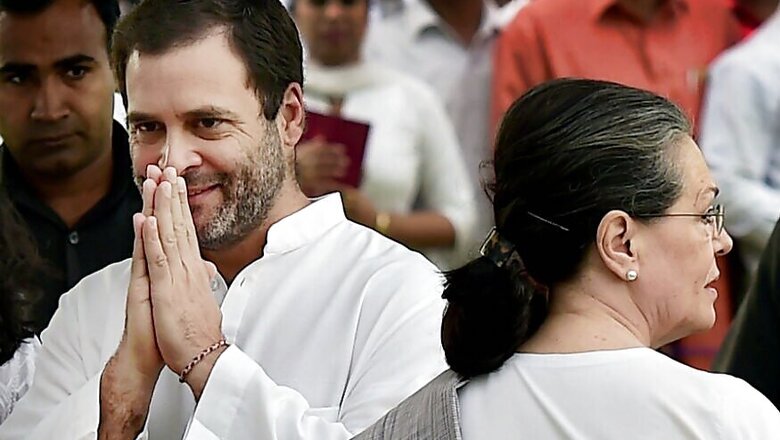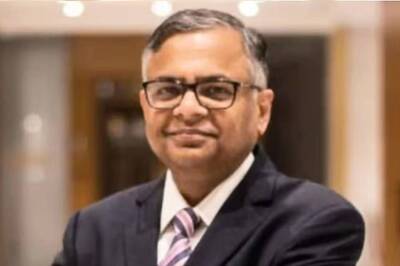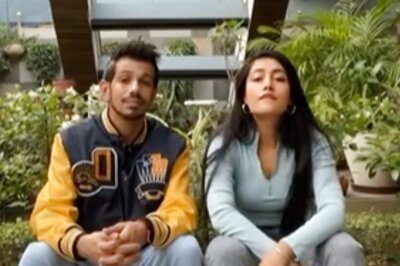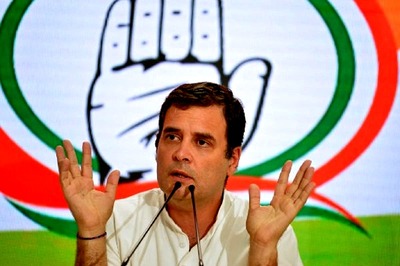
views
Ever since the midnight session of what was then the Constituent Assembly, was held on the night of August 14-15, 1947 to announce the arrival of independent India on the global arena, sittings in the Central Hall at the dead of the night held tremendous symbolic value.
Since then, such sessions were held only twice: the first time in 1972 to mark silver jubilee of Independence, and then in 1997 to commemorate India turning 50. Undoubtedly, both the events were watershed in history.
In 1992, a special session was held at 10.45pm to mark the golden jubilee of the Quit India movement.
For starters, the government and Modi's team have been working overtime to present the ushering in of Goods and Service Tax (GST) as a momentous event at par with several major national milestones. The government also displayed clear intention of claiming the GST as its achievement, somewhat underplaying the role of previous duos of prime minister and finance minister.
The Congress, the Left parties and some others like Rashtriya Janata Dal decided to stay away from the midnight event because of the belief that the government's enthusiasm notwithstanding, people are not exactly excited about the change in the tax regime.
The Congress specifically wishes to capitalise on the anticipated dissatisfaction that is expected to set in post-GST launch. Various experts have opined that there was need for greater pre-launch groundwork and that the new tax system is being launched without a test run. They argued that in the least, the GST regime will cause confusion and disrupt businesses of traders. Coming close on the heels of demonetisation, also was a major irritant for traders, the Congress decision has been motivated by belief that it is presented with the opportunity to secure the backing of this community.
The BJP has indisputably — though consciously or unconsciously is a matter of debate — decided to understate that the accomplishment of the prime minister, finance minister and their retinue stands on the platform created by the two prime ministers preceding Modi. The entire process has seen bipartisan participation after Atal Bihari Vajpayee and his panel of economic advisors, including three former RBI governors IG Patel, Bimal Jalan and C Rangarajan conceptualised GST in 1999. The first empowered committee of state finance ministers was established in July 2000 with West Bengal finance minister Asim Dasgupta, known for his sharp financial acumen. He remained at its helm for a decade before the BJP's Sushil Modi, then finance minister of Bihar donned the mantle.
After the parting of ways between BJP and JD(U), Modi stepped down in June 2013 and was followed by Jammu and Kashmir finance minister Abdul Rahim Rather. But after the election of the Modi government, the tradition of the committee being headed by a finance minister from an opposition-ruled state was revived.
Consequently, KM Mani from Kerala was elected and when he was embroiled in a financial controversy and resigned, he was followed by Amit Mitra. The midnight session provides an opportunity to rue the waning of bipartisanship in Indian politics. Blame for this has to be shared collectively by the ruling and opposition parties.
Experts versed in parliamentary rules point out that a law remains a property of Parliament only till its enactment. Thereafter, it becomes a property of the Executive which also assumes responsibility to oversee the process of it coming into effect. A former Secretary General of Lok Sabha pointed out that once a law becomes the Executive's 'baby', it is against parliamentary convention to use the House as a venue to herald the law. A degree of separation must be maintained between Parliament and the Executive but this tradition has been consistently undermined since this government assumed office, the retired parliamentary officer told me.
Yet, the last minute declaration of its intention and providing a reason for it, indicates that the Congress decided to stay away from the function and then sought a reason. This shows that neither Treasury Benches nor the Opposition are any longer sticklers for parliamentary practices and both are equally responsible for undermining civil institutions. It is unfortunate that even a momentous change in the tax regime will be shadowed by a political sub-plot. Clearly not happy augury for democratic traditions. (The writer is a Delhi-based writer and journalist. He authored Narendra Modi: The Man, The Times and Sikhs: The Untold Agony of 1984. His Twitter handle is @NilanjanUdwin. Views are personal)



















Comments
0 comment